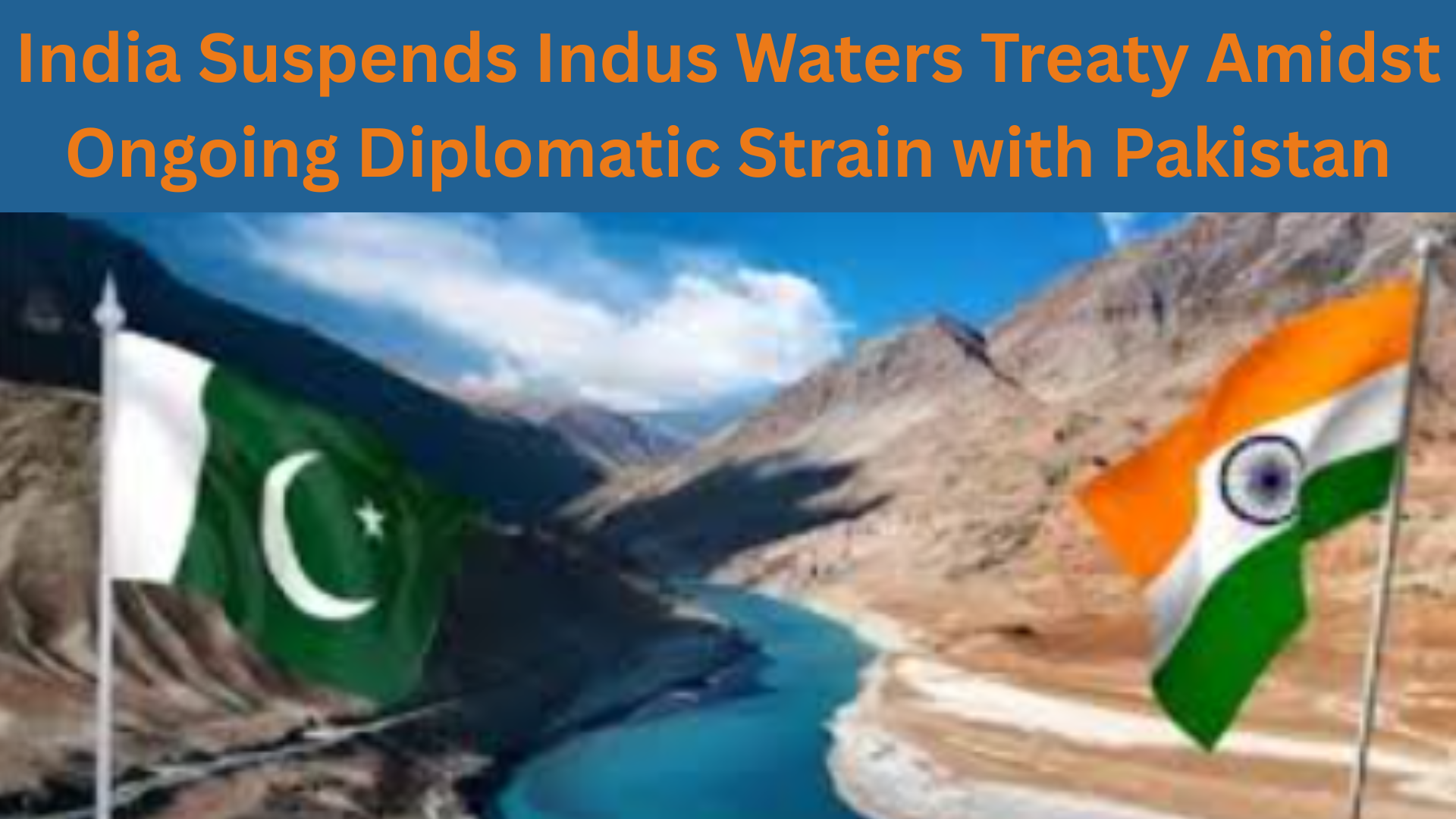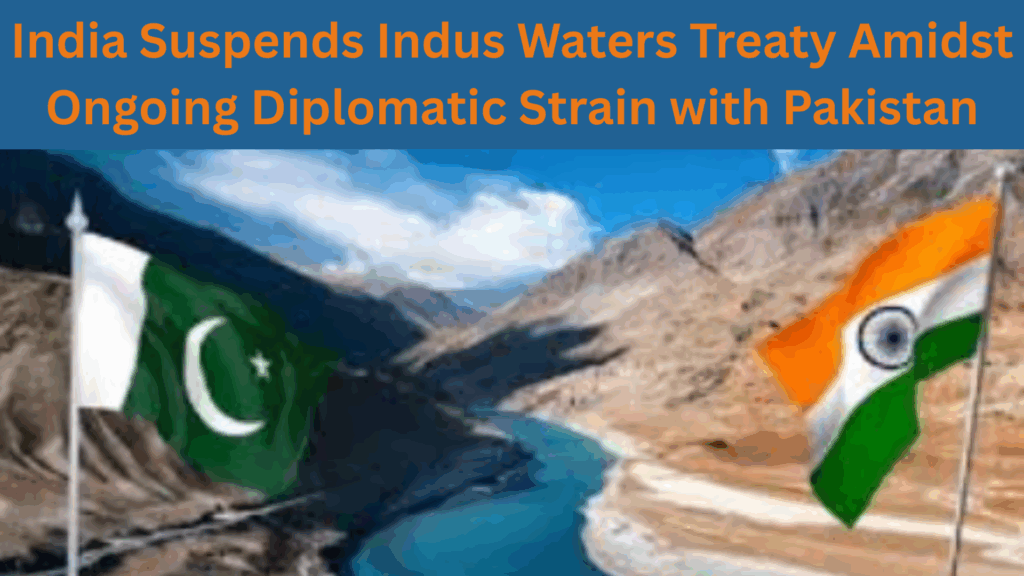We suggest reading this post to find relevant updates on why India Suspends Indus Waters Treaty Amidst Ongoing Diplomatic Strain with Pakistan and its implications.
India Suspends Indus Waters Treaty Amidst Ongoing Diplomatic Strain with Pakistan
After a devastating terrorist attack in Pahalgam, Kashmir, on April 22, 2025, India and Pakistan suspended the Indus Waters Treaty (IWT) due to national security concerns. This was a significant geopolitical event.
India has attributed the incident, which claimed the lives of 26 people, to terrorist groups with their headquarters located in Pakistan. This suspension marks a dramatic shift in the two nations’ long-standing water-sharing agreement. Experts warn that by preventing the sharing of critical water data and reducing flows during crucial harvest seasons, India’s suspension of the Indus Waters Treaty (IWT) could negatively impact Pakistan’s agriculture sector.
What is the Indus Waters Treaty?
According to the 1960 treaty, India is given the eastern rivers—the Sutlej, Beas, and Ravi—and Pakistan the western rivers—the Indus, Jhelum, and Chenab. It is important to note that the treaty contains no clauses allowing for unilateral suspension.

The IWT is a cornerstone of India-Pakistan relations, having endured multiple wars and tense diplomatic situations. The agreement granted Pakistan rights over the Indus, Jhelum, and Chenab rivers in the west and India sovereignty over the Ravi, Beas, and Sutlej rivers in the east. The agreement has been widely hailed as a successful example of transboundary water cooperation.
More Information: Get Here
India Suspends Indus Waters Treaty Reason
India’s decision to revoke the long-standing agreement follows a terror attack in Pahalgam, Jammu and Kashmir, on Tuesday that claimed 26 lives, mostly tourists.
The Indian government announced the suspension in an effort to counter cross-border terrorism. Officials say that given the current security threats, the treaty, which is predicated on goodwill between the parties, is not feasible.
In essence, the suspension gives India more control over its water resources by stopping the annual meetings of the Indus Waters Commissioners, the exchange of hydrological data, and the announcement of new projects in advance.
Implications on Pakistan
Pakistan, which depends heavily on the Indus River system for agriculture and electricity, is facing significant challenges as a result of the suspension. Since these waterways are vital to more than 80% of its farmed land, disruptions could exacerbate food insecurity and energy shortages.
The country’s 2022–2023 Economic Survey states that agriculture employs 37.4% of the labor force and contributes 22.7% of GDP, further taxing Pakistan’s already precarious economy.
The Pakistani government condemned the suspension as an aggressive and unilateral action and threatened to declare any attempt to reroute water supplies an act of war. Legal experts claim that the treaty’s lack of provisions for unilateral suspension makes things even more difficult.
Conclusion
Stability in the region may be impacted by the increased tension between the two nuclear-armed neighbors compared to before the IWT was suspended. Analysts say the action could set a precedent for the politicization of shared natural resources by encouraging other countries to follow suit in transboundary water disputes.
The current situation highlights the delicate nature of India-Pakistan relations and the challenges of managing shared environmental resources in the midst of geopolitical disputes. The international community keeps a close eye on both nations as they navigate this crisis because it knows that the outcome of this conflict will significantly affect regional cooperation and peace.
We are extremely happy that you are here to read this post on ‘India Suspends Indus Waters Treaty Amidst Ongoing Diplomatic Strain with Pakistan’ with us.






